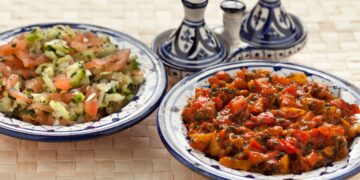In Morocco, mangoes are often seen as an exotic yet increasingly common fruit, especially in the markets of Agadir and Marrakech. While traditionally associated with tropical countries, Morocco’s diverse climate has made it possible to cultivate these sweet and juicy fruits locally. For many Moroccans, mangoes are not only a refreshing treat but also a potential ally in supporting health. The question often arises: can something so sweet actually help manage blood sugar? Surprisingly, the answer is yes—when eaten in moderation.
Mangoes and Blood Sugar Balance
Mangoes are naturally sweet, but unlike processed sugar, they come packed with fiber, vitamins, and antioxidants. The fiber in mangoes slows down the release of sugar into the bloodstream, which helps prevent sudden spikes in glucose levels. This makes them different from candies, pastries, or sodas that deliver sugar almost instantly.
Moreover, mangoes contain bioactive compounds like mangiferin, which has been studied for its potential to improve insulin sensitivity. For people in Morocco who are at risk of diabetes—a growing concern in both urban and rural areas—mangoes can be a better alternative to sugary snacks.
A Testimonial from Agadir
Fatima, a 52-year-old woman from Agadir, shares her experience:
“I was diagnosed with type 2 diabetes three years ago. At first, I thought I had to give up all sweet fruits. But when my doctor explained that I could eat mangoes in small portions, I was relieved. Now, I include a few slices of fresh mango with my breakfast or blend it into a smoothie with plain yogurt. It satisfies my sweet cravings without making my blood sugar spike too much. I feel like I’m enjoying life again without fear.”
Her story reflects a growing awareness in Morocco about the role of balanced eating in managing health conditions.
Prevention Through Lifestyle and Tradition
In Moroccan culture, food is often seen as medicine, and prevention is deeply linked to daily choices. Including mangoes in one’s diet can be part of a preventive approach to diabetes and other metabolic conditions. Pairing mangoes with protein-rich foods such as almonds, yogurt, or cheese—common staples in Moroccan households—can further stabilize blood sugar.
At the same time, portion control remains key: one medium-sized mango can be shared among several people at the table, making it both a healthy and social habit. Preventive healthcare in Morocco is increasingly emphasizing diet and lifestyle, and mangoes are finding their place in this movement.
Building Business Partnerships Through Moroccan Cultural Events
In today’s interconnected world, businesses are constantly searching for innovative ways to establish trust, strengthen networks, and expand their reach....
Hiking Trails in the Middle Atlas Mountains
The Middle Atlas Mountains are often overshadowed by the High Atlas or the Rif, yet they hold some of Morocco’s...
From Passion to Profession: Turning Creative Skills into Income
In Morocco, more young people are transforming their creative talents into careers. Whether it’s photography, calligraphy, fashion design, or digital...
Young Moroccans Abroad: Balancing Wanderlust and Roots
For many young Moroccans, the dream of exploring the world is irresistible. Whether through study, work, or travel, living abroad...
A Sweet Balance for the Future
The growing popularity of mangoes in Morocco is not just about taste; it is also about adapting modern nutrition science to traditional food culture. Mangoes remind us that sweetness in our diet does not always have to mean harm.
With careful moderation, this golden fruit can help balance blood sugar, support prevention, and bring joy to the Moroccan table. As local cultivation expands, mangoes may soon become a symbol of how Morocco blends tradition, modern health knowledge, and natural abundance.
















Discussion about this post